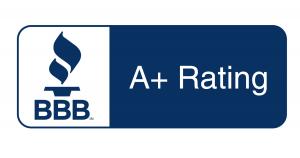What is a Bench Warrant?

What Happens When a Bench Warrant Is Issued?
When a bench warrant is issued against an individual, it alerts the police department of the right to arrest the individual so they can remain vigilant. While the purpose of this type of warrant isn’t to bring in an individual on a crime per se, it ensures they attend the hearing they previously missed so they can be brought up on the charges in that case. The bench warrant is essentially a means to this end, rather than relying on the charged individual to appear on his or her own, since he or she has previously failed to do so already. It takes some of the responsibility off the charged person and places it in the hands of law enforcement. In most cases, the individual must be pulled over for another reason before the warrant can be acted on.
What Procedures Are Followed?
Once an individual has been brought in on a bench warrant in Pennsylvania, there is a certain procedure that will take place in the court in order to move forward with the case. Upon arrest, the individual will be delivered to the hearing immediately to go over the charges. In some cases, this hearing may be conducted over two-way audio/visual conferencing, rather than in person, depending on availability, location and other factors. In a situation where the individual is arrested on a bench warrant in the county in which it was issued, but the judicial officer is unavailable for an immediate hearing, the individual will be kept in the county jail until the first available opportunity to hold the hearing. If the individual is arrested in a different county, they will alert the issuing county regarding the capture of the individual and follow their instructions for transportation. Individuals who are held on a bench warrant must have a hearing within 72 hours or on the next business day closest to the 72 hour mark or they must be released. They cannot be held for longer than this time period.
What Should You Do?
You don’t have to wait until you are arrested by an officer when you find out a bench warrant has been issued against you. Most individuals are well aware they will be issued a bench warrant because they have failed to appear in court as ordered. However, many people think they won’t be found so they continue to hide. Unfortunately, with all the available resources today, it is nearly impossible to escape a bench warrant, primarily because the arresting officer doesn’t necessarily need another reason to speak with you. If they know who you are, they can make an arrest with this type of warrant. Therefore, your best course of action if you find yourself in this situation is to contact a lawyer and determine your next course of action so you can get the best possible outcome from your case.
Most people think of warrants for your arrest that relate to a crime that has been committed, but this isn’t the only purpose of these documents. If you have a scheduled court appearance and you fail to appear, you could be facing additional charges, which may include the issuance of a bench warrant that allows law enforcement to bring you in. They will be able to put you under arrest and bring you in immediately without needing another reason, which will put you in front of a judicial officer so your case can be heard. This will ensure you face the judge for the original charges and face the consequences of wasting the courts time previously.
If you’re facing a bench warrant, you need an attorney who can help. Contact us so we can help you determine the best course of action for your case.









